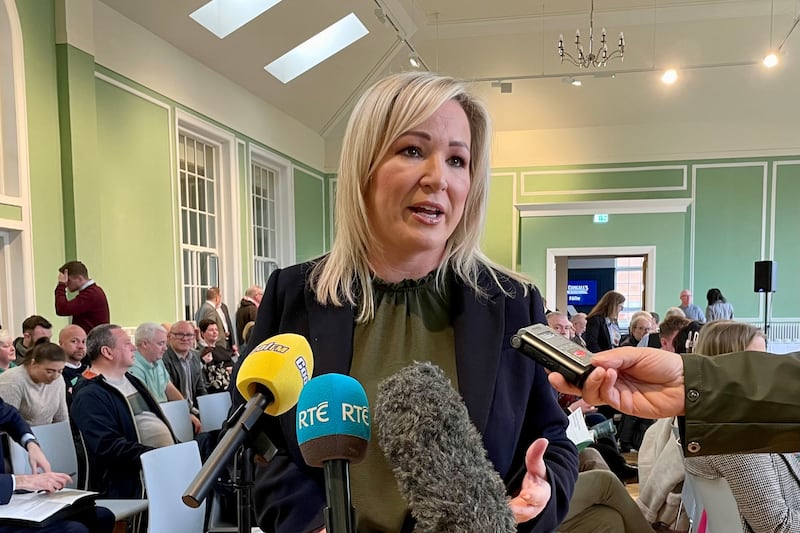There have been many occasions since the signing of the Good Friday Agreement almost a quarter of a century ago when the start of a new year was greeted with generally negative assessments about the state of our Stormont structures.
However, it is difficult to recall a stage when there was such stark and widespread pessimism over any prospect that the devolved institutions might deliver some form of tangible progress on behalf of our long-suffering citizens.
In the face of what seems likely to become the worst economic recession for a generation, and with the health service enduring one calamity
after another, the firm indications are that locally elected politicians will be prevented from playing a part in the search for solutions and we will have to rely instead on a thoroughly discredited and disinterested Westminster administration.
While taoiseach Leo Varadkar, in the course of a Press Association interview published yesterday, stressed the willingness of the European Union to take an imaginative approach to the protocol stalemate, there is little evidence of similar flexibility on the part of the DUP.
What is particularly depressing is that the DUP gives the impression of being quite pleased that it has set out to wrongly present the protocol debate as a basic and old fashioned orange versus green argument.
It needs to be acknowledged that different sides have been responsible for suspending Stormont down the decades but few parties have ever displayed the level of cynicism associated with the DUP in recent months.
Senior DUP figures knew that the protocol was an inevitable consequence of Brexit, and openly accepted the potential offered by the new arrangements, until they were challenged by fringe elements within unionism who had always rejected the power sharing principles at the heart of the Good Friday Agreement.
Rather than take the slightest risk of being outflanked on the right, the DUP retreated to a crude boycotting policy which may well ensure that devolution as we have known it never returns.
Even if a deal is reached between the EU and the UK, as Mr Vardkar has predicted is a reasonable possibility, the damage to inter-party relationships at Stormont has already been done.
Unless the DUP engages in another startling u-turn, the chances of restoring a cross-community executive will finally fade away and the wider debate on constitutional options will dominate the proceedings.







